2017 Chalearn Looking at People Workshop ICCV
Program Committee

Sergio Escalera
Computer Vision Center (UAB) and University of Barcelona, Spain
sergio.escalera.guerrero@gmail.com
Sergio Escalera is Full Professor at the Department of Mathematics and Informatics, Universitat de Barcelona, where he is the head of the Informatics degree. He is ICREA Academia. He leads the Human Pose Recovery and Behavior Analysis Group. He is Distinguished Professor at Aalborg University. He is vice-president of ChaLearn Challenges in Machine Learning, leading ChaLearn Looking at People events. He is also Fellow of the ELLIS European Laboratory for Learning and Intelligent Systems working within the Human-centric Machine Learning program. He participated in several international funded projects and received an Amazon Research Award. He has published more than 300 research papers and received a CVPR best paper award nominee and a CVPR outstanding reviewer award.

Hugo Jair Escalante
INAOE, México
hugojair@inaoep.mx
Hugo Jair Escalante is researcher scientist at Instituto Nacional de Astrofisica, Optica y Electronica, INAOE, Mexico. Previously, he was assistant professor at the Graduate Program on Systems Engineering at UANL. He holds a PhD in Computer Science, for which he received the best PhD thesis on Artificial Intelligence 2010 award (Mexican Society in Artificial Intelligence). He was granted the best paper award of the International Joint Conference on Neural Networks 2010 (IJCNN2010). He is secretary and member of the board of directors of ChaLearn, The Challenges in Machine Learning Organization, a non-profit organism dedicated to organizing challenges, since 2011. Also, he is member of the board of the CONACYT Network on Applied Computational Intelligence, regular member of AMEXCOMP and member of the National System of Researchers (SNI). Since 2017, he is editor of the Springer Series on Challenges in Machine Learning, a new book series focused on academic competitions within machine learning and related fields. He has been involved in the organization of several challenges in computer vision and machine learning, collocated with top venues in machine learning and computer vision, see http://chalearnlap.cvc.uab.es/. He has served as co-editor of special issues in IJCV, IEEE TPAMI, and IEEE Transactions on Affective Computing. He has served as area chair for NIPS 2016 and NIPS 2017, and has been member of the program committee of venues like CVPR, ICPR, ICCV, ECCV, ICML, NIPS, IJCNN. His research interests are on machine learning, evolutionary computing and its applications on language and vision.

Xavier Baró
Universitat Oberta de Catalunya, Barcelona, Catalonia
xbaro@uoc.edu
Xavier Baró received his B.S. degree in Computer Science at the Universitat Autònoma de Barcelona (UAB) in 2003. In 2005 he obtained his M.S. degree in Computer Science at UAB, and in 2009 the Ph.D degree in Computer Engineering. At the present he is a lecturer and researcher at the IT, Multimedia and Telecommunications department at Universitat Oberta de Catalunya (UOC). He is involved on the teaching activities of the Computer Science, Telecommunication and Multimedia degrees of the UOC, and collaborates as assistant professor on the teaching activities of the Computer Science degree at the Applied Mathematics and Analysis of the Universitat de Barcelona (UB). In addition, he is involved on the Interuniversity master on Artificial Intelligence (UPCUBURV). He is cofounder of the Scene Understanding and Artificial Intelligence (SUNAI) group of the UOC, and collaborates with the Computer Vision Center of the UAB, as member of the Human Pose Recovery and Behavior Analysis (HUPBA) group. His research interests are related to machine learning, evolutionary computation, and statistical pattern recognition, specially their applications to generic object recognition over huge cardinality image databases.
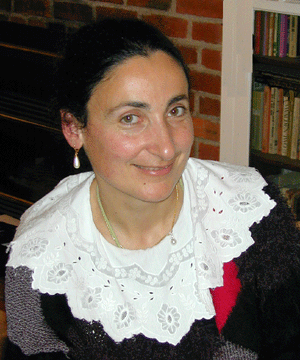
Isabelle Guyon
University Paris-Saclay, France and ChaLearn USA
isabelle@clopinet.com
Isabelle Guyon ( http://guyon.chalearn.org/ ) is chaired professor in “big data” at the Université ParisSaclay, specialized in statistical data analysis, pattern recognition and machine learning. She is one of the cofounders of the ChaLearn Looking at People (LAP) challenge series and she pioneered applications of the MIcrosoft Kinect to gesture recognition. Her areas of expertise include computer vision and and bioinformatics. Prior to joining ParisSaclay she worked as an independent consultant and was a researcher at AT&T Bell Laboratories, where she pioneered applications of neural networks to pen computer interfaces (with collaborators including Yann LeCun and Yoshua Bengio) and coinvented with Bernhard Boser and Vladimir Vapnik Support Vector Machines (SVM), which became a textbook machine learning method. She worked on early applications of Convolutional Neural Networks (CNN) to handwriting recognition in the 1990’s. She is also the primary inventor of SVMRFE, a variable selection technique based on SVM. The SVMRFE paper has thousands of citations and is often used as a reference method against which new feature selection methods are benchmarked. She also authored a seminal paper on feature selection that received thousands of citations. She organized many challenges in Machine Learning since 2003 supported by the EU network Pascal2, NSF, and DARPA, with prizes sponsored by Microsoft, Google, Facebook, Amazon, Disney Research, and Texas Instrument. Isabelle Guyon holds a Ph.D. degree in Physical Sciences of the University Pierre and Marie Curie, Paris, France. She is president of Chalearn, a nonprofit dedicated to organizing challenges, vicepresident of the Unipen foundation, adjunct professor at NewYork University, action editor of the Journal of Machine Learning Research, editor of the Challenges in Machine Learning book series of Microtome, and program chair of the upcoming NIPS 2016 conference.
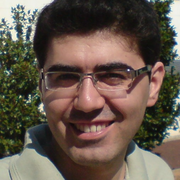
Meysam Madadi
Universitat de Barcelona and Computer Vision Center, Spain
meysam.madadi@gmail.com
Meysam Madadi received his Bachelor degree in Software Engineering at BuAli Sina university of Hamedan and M.S. degree in Computer Vision and Artificial Intelligence at Universitat Autònoma de Barcelona (UAB) in 2007 and 2013, respectively. He has started his research activities by focusing on information retrieval and data mining since his bachelor project, continuing in master specifically on computer vision and image processing. He gave a special attention to pose recovery and human behavior analysis from his master thesis in title of Extraction of body soft-biometry from 3D videos using Kinect. He is interested in generating and developing new algorithms in these topics applying the knowledge in computer vision and retrieval systems besides machine learning, algorithms design in artificial intelligence, statistics, and linear algebra, among others.
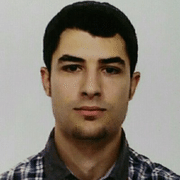
Víctor Ponce
Universitat de Barcelona and Computer Vision Center, Spain
vponcelop@gmail.com
Víctor Ponce Received his B.S. degree in Computer Science in 2010, and his M.S. degree in Artificial Intelligence in 2012. I’m a Ph.D. candidate at the the Dept. of Mathematics and Computer Science, University of Barcelona. I’m member of the Computer Vision Center, in the group Human Pose Recovery and Behavior Analysis (HuPBA). His main interests of research are the fields of computer vision, machine learning, and evolutionary computation applied to human behavior analysis.

Gian Luca Foresti
University of Udine, Italy
gianluca.foresti@uniud.it
Gian Luca Foresti was born in Savona, Italy, in 1965. He received the Laurea degree cum laude in Electronic Engineering in 1990 and the Ph.D degree in Computer Science in 1994 from University of Genoa. In 1994 he was visiting Professor at Trento University in an Electronic Engineering course. Currently, he is Full Professor at the Department of Mathematics, Computer Science and Physics (DMIF) of the University of Udine. Immediately after the Laurea degree, he worked with the Departement of Biophysical and Electronic Engineering (DIBE) of University of Genoa in the area of Computer Vision, Image Processing and Image Understanding. His Ph.D thesis dealt with distributed systems for analysis and interpretation of real video sequences. He worked at several National and International projects founded by the European Commission, especially in the fields of autonomous vehicle driving and active surveillance systems for outdoor environments. Prof. Foresti is author or co-author of more than 200 papers published in International Journals, Book Chapters and Refereed Conference Proceedings. Prof. Foresti serves as reviewer for several International Journals and he is IEEE Senior Member, IAPR Fellow Member and member of GRIN. He has been also involved as evaluator of project proposals in several Research Programs founded by the European Union.

Matthew Turk
University of California, United States of America
mturk@cs.ucsb.edu
Matthew Turk is the President of TTIC, an independent philanthropically endowed graduate research institute that focuses on computer science theory and artificial intelligence. His research interests are in computer vision and human-computer interaction, largely concerned with using computer vision as an input modality. That means using cameras (and other sensors) to perceive relevant information about people and the world and then using this information to improve the interface between humans and computers. In recent years, many of the applications have been in augmented reality, and mostly focused on real-time mobile computing environments.
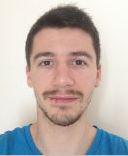
Ciprian Corneanu
CVC and University of Barcelona, Spain
cipriancorneanu@gmail.com
Ciprian Adrian Corneanu got his MSc in Telecommunication Engineering from Télécom SudParis in 2011. He spent the next three years in Germany with C.R.S iiMotion, a Thomson spin-off, developing industrial image processing applications for the consumer market. Currently he is a Ph.D student at the Universitat de Barcelona and a fellow of the Computer Vision Center from Universitat Autonoma de Barcelona. His main research interests include face and behavior analysis, affective computing, social signal processing, human computer interaction.
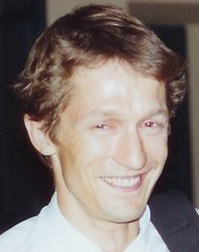
Henning Müller
University of Applied Sciences Western Switzerland (HES-SO), Switzerland
henning.mueller@hevs.ch
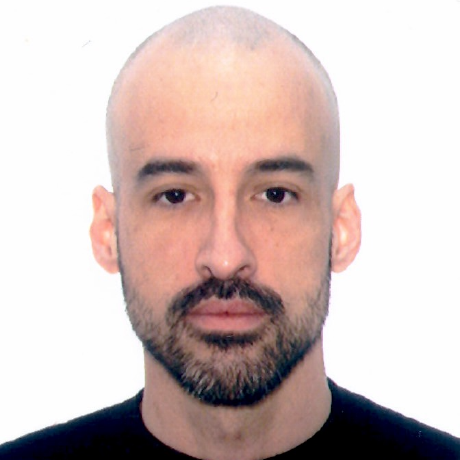
Albert Clapés
Computer Vision Center (UAB)
aclapes@cvc.uab.es
He obtained his Ph.D. degree in action recognition at the University of Barcelona (UB) in 2019. He is currently working on a multimodal fall detection project at Computer Vision Center (CVC), which is part of Universitat Autònoma de Barcelona (UAB). He is also a member of the Human Pose Recovery and Behavior Analysis Group. He participated in the organization "Chalearn joint contest on multimedia challenges beyond visual analysis'' (ECCV16 and ICPR16), which included RGB-D gesture recognition and another track of personality traits recognition from short YouTube clips. His research interests include multimodality, action recognition, and sequential learning models.

Gholamreza Anbarjafari
University of Tartu, Estonia
shb@ut.ee
Assoc. Prof. Dr. Gholamreza Anbarjafari (Shahab) received his B.Sc., M.Sc., and Ph.D. degrees from Department of Electrical and Electronic Engineering at Eastern Mediterranean University (EMU), Famagusta, Cyprus, in (Jan) 2007, (June) 2008, (Jan) 2011 respectively. He has been working in the field of image processing and is currently focusing in many research works related to face recognition/tracking, image enhancement, super resolution, image compression, watermarking, and low-bit rate video coding. He is currently working as an Assoc. Prof. in Institute of Technology at University of Tartu and is the head of iCV research group. He is also the supervisor of Philosopher, the Estonian Robocup team of university of Tartu. He is Vice Chair of Signal Processing / Circuits and Systems / Solid-State Circuits Joint Societies Chapter of IEEE Estonia and Consular of IEEE Student Branch at University of Tartu. He is an IEEE Senior member since 2016.
Marc Oliu
Marc Oliu Simón, Barcelona, Spain

Julio C. S. Jacques Junior
University of Barcelona (UB), Spain
juliojj@gmail.com
Julio C. S. Jacques Junior is an assistant professor at University of Barcelona (UB) and a research collaborator within Computer Vision Center (CVC). Member of the Human Pose Recovery and Behavior Analysis (HUPBA) group, he also collaborates within within ChaLearn and ChaLearn (LAP) Looking at People. He helped to organize workshops and challenges at high impact conferences (e.g., NeurIPS, CVPR, ECCV, ICCV). His research interests include, among others, computer vision-based applications with a particular focus on visual human behavior analysis.
Weiming Hu
Institute of Automation, Chinese Academy of Sciences (CASIA)
wmhu@nlpr.ia.ac.cn
Juan P. Wachs
Purdue university, USA
jpwachs@purdue.edu
Oscar Koller
RWTH Aachen University
koller@cs.rwth-aachen.de
YingLi Tian
Department of Electrical Engineering, the City College, New York
ytian@ccny.cuny.edu
Pichao Wang
University of Wollongong, Australia
pw212@uowmail.edu.au
YanYan Liang
Macau University of Science and Technology, China, Macao SAR
yyliang@must.edu.mo
Zhen Lei
Institute of Automation, Chinese Academy of Sciences (CASIA)
zlei@nlpr.ia.ac.cn
Shencai Liao
Institute of Automation, Chinese Academy of Sciences (CASIA)
scliao@nlpr.ia.ac.cn
Yang Yang
Institute of Automation, Chinese Academy of Sciences (CASIA)
yang.yang@nlpr.ia.ac.cn
Juri Alli
Institute of Psychology, University of Tartu
juri.allik@ut.ee
Ikechukwu Ofodile
Intelligent computer vision (iCV) group, University of Tartu
ike@icv.tuit.ut.ee
obtained his BSc in Electrical and Electronics Engineering from Eastern Mediterranean University, North Cyprus. He is currently a MSc Student and a member of the intelligent computer vision (iCV) research group at the University of Tartu, Estonia. He is also a member of Philosopher, the Estonian Robocup team of the University of Tartu and a member of the Estonian student satellite project working on attitude determination and control of ESTCube-2. His research interests include machine learning, pattern recognition and HCI as well as control engineering and attitude control system design for nanosatellites and microsatellites.
Jelena Gorbova
Intelligent computer vision (iCV) group, University of Tartu
lena@icv.tuit.ut.ee
is currently a student of mathematical Statistics and a member of the intelligent computer vision (iCV) research group at the University of Tartu, Estonia. She is working on human behaviour analysis using audiovisual signal processing. She has been involved in organizing joint challenge on dominant and complementary emotion recognition using micro emotions and head pose estimation held in FG2017.
Xilin Chen
Institute of Computing Technology, Chinese Academy of Sciences
xlchen@ict.ac.cn
Wanging Li
University of Wollongong, Australia
wanqing@uow.edu.au
Fatih Porikli
Australian National University (ANU), Canberra, Australia
fatih.porikli@anu.edu.au
News
There are no news registered in